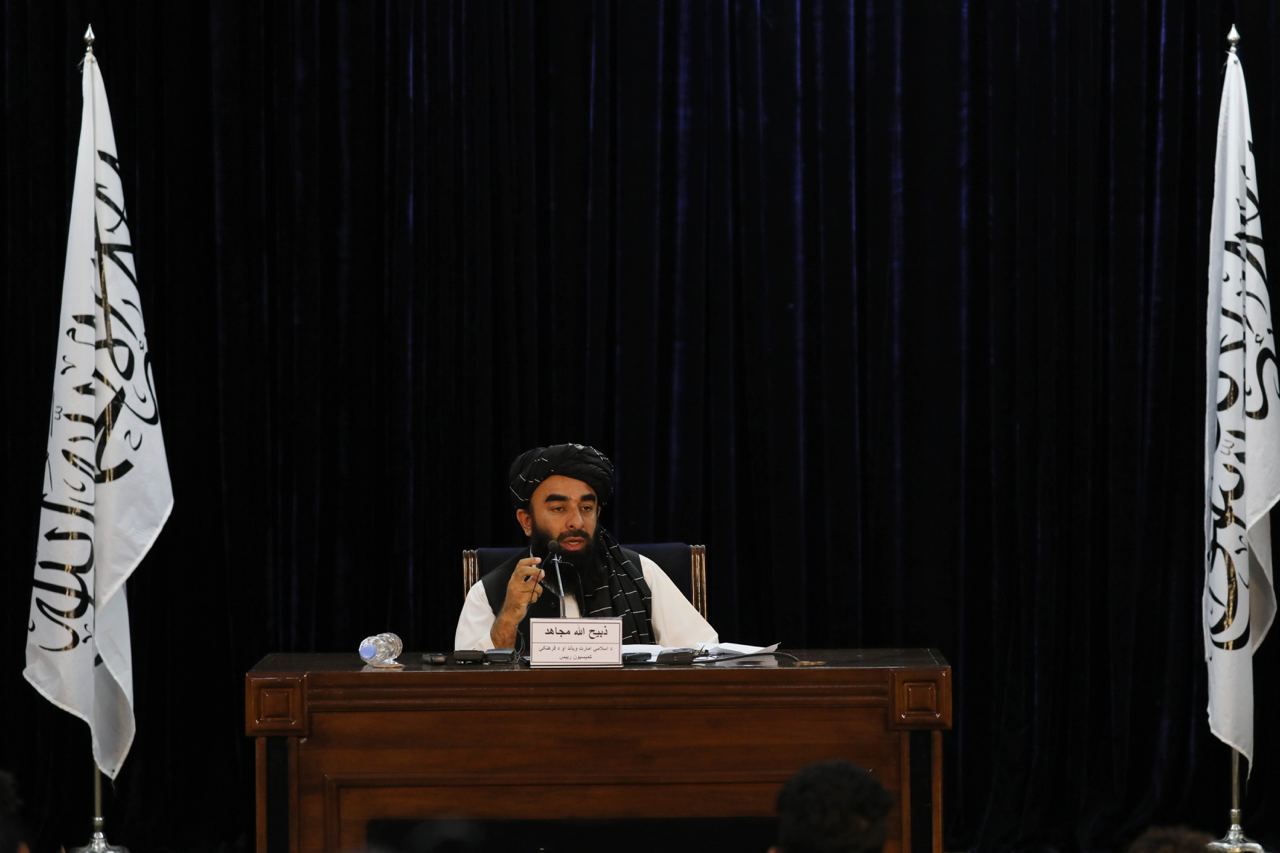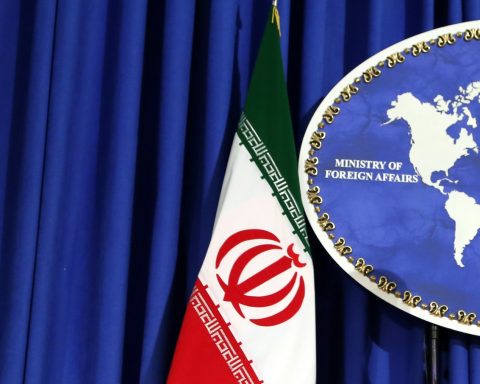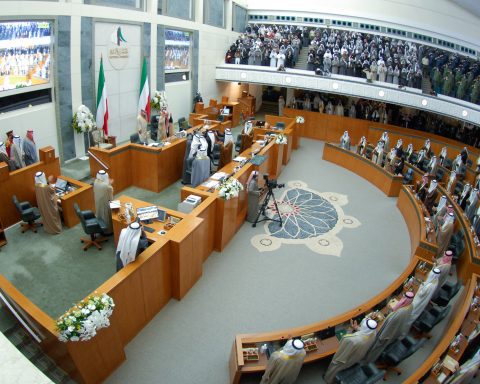Taliban announced its long-anticipated government list late on Tuesday. This came weeks after the group seized control over the capital Kabul. According to the statement, the newly-founded ‘interim government’ would be led by Mullah Mohammad Hasan Akhund.
The announcement made by the Taliban’s spokesperson Zabihullah Mujahid. Mujahid’s statement came a day after the Taliban announced that the group established full control over the country. The long-anticipated list includes 33 cabinet members.
Making an announcement at a news conference held in Kabul’s Information Ministry building, Spokesperson Mujahid stated that Mullah Abdul Ghani Baradar and Mullah Abdul Salam Hanafi would assume the post of Akhund’s deputies.
While Sarajuddin Haqqani, the son of one of the group’s founders, would be acting interior minister, Amir Khan Muttaqi has been named as acting foreign minister, according to the declared list.
The defense ministry has been commended to Mohammad Yaqoob Mujahid, the son of the group’s late supreme leader Mullah Omar.
Stating the list as the first phase of the government, Zabihullah said that more ministries would be added in the upcoming period. A ministry for women’s affairs is also among those considered to be established, he added.
Speaking after the announcement, the head of the government, Hassan Akhund, stated that the declared government consists of people who come from different ethnic backgrounds.
Taliban’s spokesperson voiced his hope that international community, and particularly the Muslim world and neighboring countries would recognize the new government.
“We are eager to collaborate with everyone, even the US, which we fought for 20 years,” Mujahid said.
Noteworthy figures in the new interim Taliban government
A senior Taliban member who is on the UN sanctions lists, Akhund assumes the acting prime ministry post in the new Afghan government. He is known as one of the close partners and political adviser to Mullah Omar, the founder of the movement and its first supreme leader.
Considered by the UN as one of the most influential Taliban commanders, Akhund also served as foreign minister and deputy foreign minister during the Taliban’s first experience in the government in the 1990s. UN Security Council put him on the sanction list due to his link with the Taliban “acts and activities.”
His deputy Abdul Ghani Baradar, known as one of the founders of the Taliban, gained a reputation among the group through his role in the war against the Soviet invasion of Afghanistan in the late 1970s. He is also accepted as one of the close aides of the Mullah Omar.
According to the speculations that emerged following the fall of the Taliban government in 2001 through the US-led intervention, Baradar was among the small group of Taliban officials who contacted then-interim leader Hamid Karzai intending to secure a possible deal that would have paved the way for the group to recognize the new administration.
Baradar was arrested in Pakistan in 2010 and held in custody until 2018. After his release, he moved to Qatar, where he was appointed as the head of the Taliban’s political office. Under this post, he conducted the negotiations, which resulted in the signing of the military withdrawal agreement with the US.
Being son of the famous Taliban commanders in the war against the Soviets, Sirajuddin Haqqani will serve in the Taliban government as acting interior minister. He is known as the deputy leader of the Taliban and head of the effective Haqqani network.
A US-designated “terror group,” which is considered as one of the most threatening armed groups in Afghanistan, the Haqqani network has a bad reputation due to its usage of suicide bombers in its attacks and is believed to be responsible for some of the most high-profile attacks in Kabul over the years.
Mullah Yaqoob, the son of Mullah Omar who is one of the founders of the Taliban, was appointed as defense minister in the Taliban government. He has already led to group’s military commission. Due to his father’s cult-lie status as the Taliban leader, Yaqoob is considered as a unifying figure within the group.
Having served as minister of culture and information as well as minister of education in the previous Taliban government during the 1990s, Mawlawi Amir Khan Mutaqi has been named for the foreign minister post.
Following the dissolution of the previous Taliban government, Mutaqi was sent to Qatar and appointed as a member of the peace commission and negotiation team that carried out negotiations with the US. Muttaqi was also led the Invitation and Guidance Commission, which oversaw efforts to ensure government officials and other key figures to defect.
During the fighting for the control of the country, Mutaqi has drawn attention through his moderate attitude. After the Taliban captured the capital of Kabul, Mutaqi has maintained his moderate stance, calling for a peaceful settlement to hostilities.
International reactions to the new interim government
After the Taliban spokesperson announced the establishment of the government, various statements regarding it have started to come from countries.
The US expressed its concern about the “affiliations and track records” of some individuals who take place in the Taliban’s new government. State Department Spokesperson said, “We note the announced list of names consists exclusively of individuals who are members of the Taliban or their close associates and no women. We also are concerned by the affiliations and track records of some of the individuals.”
The European Union, on the other hand, expressed its disappointment derived from the Taliban’s failure to commit its previous pledges regarding the inclusivity of the government.
Qatar, a country that emerged as an influential mediator in the Afghanistan issue, stated that the announced list of the Taliban’s government reflects the group’s pragmatism, adding that the group is the de facto ruler of Afghanistan.
China made statements indicating Beijing’s pleasure for the end of “three weeks of anarchy” in Afghanistan. Beijing saw the establishment of the government as an opportunity that would bring stability to the war-torn country.
Turkish President Recep Tayyip Erdoğan commented on the latest development in Afghanistan. Responding to questions of reporters during a joint press conference with the President of the Democratic Republic of the Congo, Erdogan said, “We do not know how long this interim cabinet will last. All we have to do is to follow this process carefully.”













